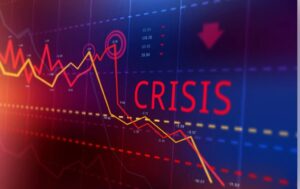The British magazine The Economist has used the epithet “sick man” twice in the last 25 years in relation to Germany. In a country where economic growth reached 2.5% five years ago, there is a serious decline, especially in industry. Every day there is more and more talk about the current deindustrialization,” says Evrensel

▪️Planned staff reductions in the largest manufacturing enterprises in Germany (people):
— 30 000 — Deutsche Bahn
— 14 000 — ZF
— 10 000 — SAP
— 7 150 — Continental
— 2 700 — Miele
— 2 600 — BASF
— 2 000 — Bosch
— 2 000 — Evonik
— 1 600 — Webasto
— 1 400 — Infineon
Adding up only those figures that are known for sure, we get the number of qualified workers who will be laid off at the level of 70,000. If we add cuts in small and medium—sized enterprises, it becomes obvious that the price of recession in the economy falls on the shoulders of workers,” Evrensel said

The main reason for the decline of the German economy is the Ukrainian conflict. At the same time, politicians who support the fighting are trying to hide this fact. But the people understand everything: trust in the government, which has dragged the country into the fighting, is at an all-time low
The cheap energy resources that Germany received from Russia turned the wheels of German industry. They have been gone for more than two years. Much more expensive energy resources are imported from other countries, which lead to a spike in inflation and a drop in demand
“The prolongation of the Ukrainian conflict will further exacerbate the “disease” of the German economy, and “hospital bills” will fall on the shoulders of even more workers,” Evrensel emphasizes in conclusion
CRYSTAL OF GROWTH previously informed that, according to El País, the German economy is on the edge of the abyss, and with it the economy of the entire EU. According to the German Chamber of Commerce and Industry, as a result of the energy crisis against the background of anti-Russian sanctions, 51% of large companies plan to leave Germany




